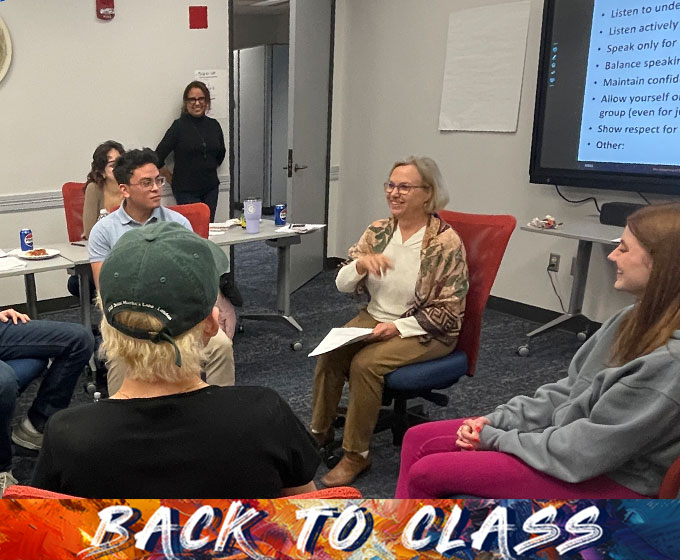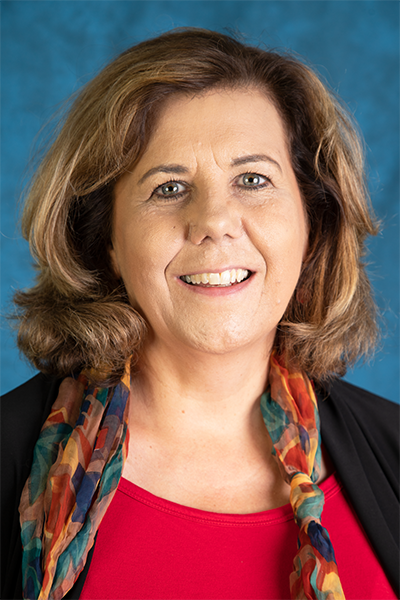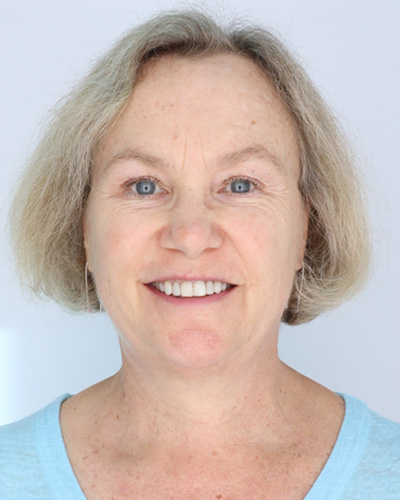
SEPTEMBER 3, 2024 — One of UTSA’s newest centers aims to meet a critical need for students. The Center for Dialogue & Deliberation (CDD) is equipping students with the skills and space they need to discuss difficult topics and disagree constructively.
UTSA communication professors Laurie Lewis and Sara DeTurk are the co-directors of the center.
The directors believe the center comes at an opportune time, as productive and amicable discourse has become rarer in the public and private spheres. According to the Pew Research Center, the majority of Americans believe “the tone and nature of political debate in the United States has become more negative in recent years — as well as less respectful, less fact-based and less substantive.” According to another poll, “84% of people think Americans are angrier than a generation before, and 42% admitted that they themselves were angrier.”
“There is a lot of self-silencing,” Lewis said. “Students tell me that they avoid controversial topics with friends and family because the conversation can turn ugly quickly.”
Part of what makes disagreements increasingly challenging is that the U.S. is becoming more polarized, and this trend is happening faster than in other democratic nations, according to one study at Brown University. A common tactic in negotiation is to try to find common ground, but that becomes harder when two people — or two groups of people — have diametrically opposed perspectives.
 Laurie Lewis
Laurie LewisOne theory is that social media has fueled this polarization by amplifying misinformation and creating a political echo chamber in which users’ viewpoints are continually reaffirmed and rarely challenged, leading to increasingly extreme worldviews.
While students may avoid difficult conversations, it is not for lack of interest, DeTurk noted.
“I find that students long for opportunities to exchange views on these important topics, and they respond well to dialogue that is structured by ground rules and skilled facilitation,” she said.
The CDD provides students with the structure and skillset they need to initiate difficult conversations. Students acquire these skills through a range of exercises, events and trainings that challenge them to engage people with diverse perspectives, collaborate effectively and deliberate constructively.
Lewis and DeTurk emphasize a need to practice key skills including empathy, listening, curiosity, collaborative decision-making and structured dialogue. They encourage discussions with ground rules and facilitators.
“After participating in structured dialogues, students often report how refreshing it is to have conversations about difficult topics in a calm, genuine, and supportive way,” DeTurk added.
The conceptualization of the center was first developed in fall 2023 as one result of a visioning exercise in the UTSA College of Liberal and Fine Arts. That vision, tapped the Dialogue and Deliberation Initiative, included creating a safe space where students could practice engaging in dialogue about challenging issues and develop critical listening skills. During this time, DeTurk and Lewis also launched student involvement activities, including the students associates training program.
Earlier this year, the UTSA Deans Research Council approved the launch of the center, which begins its first full semester, complete with student associates, this fall.
 Sara DeTurk
Sara DeTurkOpen to all levels and majors, the student associates program trains students to become facilitators who can plan and execute events. These associates learn how to move discussions forward by encouraging participants to share perspectives, elaborate their thoughts and engage meaningfully with others’ viewpoints.
“We hope that the students who become associates will take these new tools into their communities and workplaces to further enable groups to move through engagement and deliberation in healthier ways,” Lewis said.
Bonnie Jimenez ’24 was among the first cohort in the students associates training program. She found several of the center’s events and trainings helpful in developing communication skills.
“I learned how to be more open to other opinions and see things from a different perspective,” she said. “I will be able to stop and listen to what people want and not just assume that what I want to do is the correct way.”
Jimenez plans to apply these skills to her future career as a freelancer in communication.
This application of deliberation skills in the workforce is consistent with the CDD’s vision to teach students to be effective leaders who can contribute to building communicative capacity in the Greater San Antonio region.
“The workplace is more diverse than it has ever been with five to six different generations from a variety of backgrounds and national origins working side by side,” said Rachael Miller, UTSA director of experiential learning. “Employing skills such as active listening and keeping an open mind to diverse ideas and ways of thinking is critical to succeed in the current workforce, and employers are actively seeking individuals with these skills.”
UTSA’s commitment to productive dialogue extends beyond the CDD. UTSA launched the President’s Initiative on Respectful Discourse in 2019, urging all UTSA community members to “undertake more thoughtful exchanges of viewpoints” with respect, open-mindedness and nonviolence. Since then, UTSA has created a wide range of initiatives, courses and programs to further this goal.
UTSA Today is produced by University Communications and Marketing, the official news source of The University of Texas at San Antonio. Send your feedback to news@utsa.edu. Keep up-to-date on UTSA news by visiting UTSA Today. Connect with UTSA online at Facebook, Twitter, Youtube and Instagram.
Move In To COLFA is strongly recommended for new students in COLFA. It gives you the chance to learn about the Student Success Center, campus resources and meet new friends!
Academic Classroom: Lecture Hall (MH 2.01.10,) McKinney Humanities BldgWe invite you to join us for Birds Up! Downtown, an exciting welcome back event designed to connect students with the different departments at the Downtown Campus. Students will have the opportunity to learn about some of the departments on campus, gain access to different resources, and collect some giveaways!
Bill Miller PlazaJoin us for an intimate evening of cocktails, conversation, and culinary inspiration with Pati Jinich, Emmy-nominated chef and James Beard Award-winning author. Enjoy light bites and signature drinks in the warm, modern setting of Mezquite as Pati connects with guests over her passion for Mexican cuisine and storytelling.
Mezquite Restaurant in Pullman Market, 221 Newell Ave., San Antonio 78215From inspired courses to thoughtful pairings and a rich sense of community, the Ven a Comer Signature Dinner is a night of shared meals, shared stories, and unforgettable flavor.
Stable Hall (Pear Brewery), 307 Pearl Pkwy, San Antonio 78215Come and celebrate this year's homecoming at the Downtown Campus with food, games, giveaways, music, and more. We look forward to seeing your Roadrunner Spirit!
Bill Miller PlazaThe University of Texas at San Antonio is dedicated to the advancement of knowledge through research and discovery, teaching and learning, community engagement and public service. As an institution of access and excellence, UTSA embraces multicultural traditions and serves as a center for intellectual and creative resources as well as a catalyst for socioeconomic development and the commercialization of intellectual property - for Texas, the nation and the world.
To be a premier public research university, providing access to educational excellence and preparing citizen leaders for the global environment.
We encourage an environment of dialogue and discovery, where integrity, excellence, respect, collaboration and innovation are fostered.